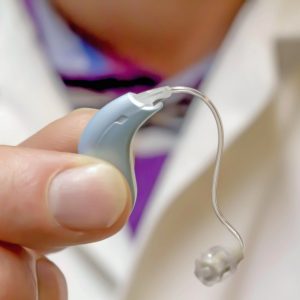All Ears: More Evidence That Hearing Loss Should Not Be Ignored

All Ears: More Evidence That Hearing Loss Should Not Be Ignored
July 24, 2019
Like a broken record (albeit one you might not be able to hear), you can’t get away from the professional advice that hearing loss should not be ignored. Joining this chorus of advice is the always informative geriatrician, Dr. Leslie Kernisan, founder of Better Health While Aging, who recently described 4 critical facts to know about hearing loss. Among the most surprising? Age-related hearing loss affects higher frequency sounds, which might explain why those with hearing loss think they can hear (because in some cases they can) yet often do not hear children’s voices. Also, don’t depend on your primary care physician to inquire about or address hearing loss, especially because traditional Medicare won’t cover routine auditory testing. Dr. Kernisan also has 2 terrific podcasts on her website addressing hearing loss, as she interviews national hearing loss expert Dr. Meg Wallhagen. Click here to listen to these podcasts, or to read the accompanying transcripts.
And just to underscore the importance of addressing hearing loss before it gets too advanced, new research has been published connecting hearing loss with brain health and other physical and social ailments that often afflict older people. First, out of the University of Exeter, researchers concluded that those who wear hearing aids to address hearing loss maintain better brain functioning over time than those with hearing loss who do not wear the aids. Bottom line? That hearing aid you’re resisting may be just what you need to protect your brain and lessen the risk of dementia. As well, out of the University of Tsukuba in Japan, researchers found a connection between hearing loss and the restriction of outdoor activities (such as shopping or travel) as well as heightened memory loss and anxiety among those with hearing loss. While neither of these new studies is particularly surprising, together they highlight the importance to your health and well-being of good hearing and the value of seeking out assistance when your hearing seems diminished.







